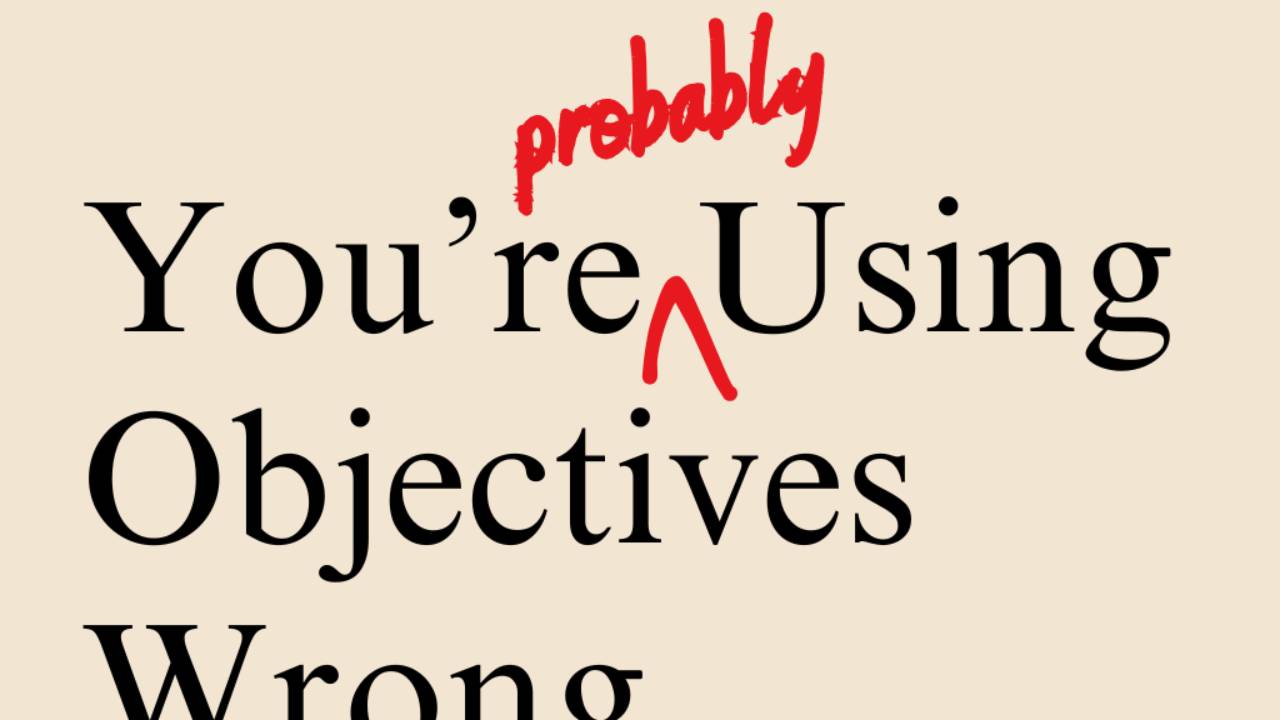Why I’m Replacing Stanislavski’s “Objective” with “Expectation”
Aug 20, 2025
Why I’m Replacing Stanislavski’s “Objective” with “Expectation”
Y’all, real talk: I think the term “objective” has lost a lot of its value as we’re currently using it.
If you’ve been through any acting class, you’ve probably heard it: “What’s your objective?” The textbook version is something like, “I want/need (my scene partner) to (do something).” It’s meant to give us a clear goal so we can fight for it, moment to moment, using different tactics and action verbs along the way.
It’s an incredibly powerful tool and it can solidify everything we’re doing, not only in the scene but also in the super objective of our character’s life.
But here’s the thing: the word’s been around so long, it’s lost its original intent. I watch actors write “objectives” in the margins of their scripts like they’re filling out a worksheet, and by the time they get in the room, it’s all happening in their heads. It’s cerebral. Academic. It’s remembering instead of pursuing.
And that’s not what “objective” was ever supposed to be.
When you’re really playing an objective, it’s a full-body pursuit. It’s forward energy. It’s you fighting for something with your whole self. But now that so much of auditioning happens in a vacuum with no other actor in the room (often) and no director giving real-time notes, it’s way too easy for “objective” to turn into a line item instead of a driving force.
That’s why I use a different word now: expectation.
If I ask an actor, “What’s your objective?” four times out of five their eyes flick up and to the side, their weight shifts back, and I can literally see them disappear into their head.
But if I say, “What’s your ideal expectation? How should the other person solve your problem right now?” Boom. Whole different energy. Their weight comes forward, their sternum connects to their partner like there’s an invisible line between them, and suddenly, they’re alive in the moment.
Here’s the magic of “expectation”:
• You’re chasing a solution with each moment. The scene should be over... NOW.
• When the other person doesn’t meet that expectation, it’s not a pre-planned “beat” on your page, it’s an actual surprise. You have to adjust in real time.
• The obstacles aren’t on you. By seeking the solution, each time your partner doesn’t give you what you need that gives you more reason to fight them harder.
When our expectation gets blocked, we get to REACT in real time.
The difference between “objective” and “expectation?” Nothing. Literally. The original intent of the word is exactly what I’m saying.
But if you, like many actors I’ve met, find yourself being aware of the text while you’re in the scene, try shifting your mindset to “What is my ideal expectation? In a perfect world, what should my partner do to solve my problem right now?” then I bet you’ll be gifted with a whole new perspective and freedom to fight.
So, yeah. “Objective” is still a fine word. But in my coaching room, “expectation” wakes actors up. It puts the weight on their toes. It keeps them chasing. And it brings the scene back to what it’s supposed to be: two people, connected, fighting for what they need right now.
When you’re done reading this, I expect you to think about it further.
-J